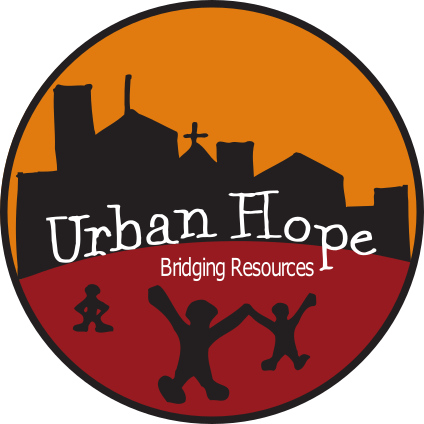The Story of Urban Hope
The dream of Urban Hope began in 2003 as an initiative focused on bridging spiritual, economic and educational resources to urban youth and their families in the inner city neighborhood called Walltown in Durham, NC. Starting in that year, The Navigators partnered with Walltown Neighborhood Ministries to run a summer camp serving youth in who primarily resided in the Walltown community. The following year (2004), The Navigators were asked to run the camp and bring in mission-minded counselors from across the nation. That same year, the camp name was changed to Urban Hope. The name "Urban Hope" was inspired by the book of Jeremiah (29:11), which focuses on God bringing hope to a people living in despair. Urban Hope wants to bring hope to a generation of young people that many have given up on.
In 2004, Urban Hope staff and volunteers began to relocate into the Walltown neighborhood. And then in 2005, things really began to heat up! Urban Hope's year-round ministries began to develop in response to the felt needs of the community. From then to now, God has continued to grow Urban Hope's ministry in Walltown:
2005–Bible Jump Off begins
2006–Walltown Junior NBA Basketball Teams launch
2007–The Young Leaders Group forms
2008–The first year-round house for interns opens
2009–Urban Hope Alumni Connect gets going
2010–The Walltown Aspiring Youth after school programs starts
2014–The Alexander House opens and welcomes its first cohort of summer camp counselors and resident interns
2018–Three young adults from Walltown become Co-Directors of Urban Hope
2021–Alexander House Scholars program launches for undergraduate students at Durham Tech, NCCU, and Duke
The Felt–Needs Concept
Often communities are developed by people outside of the community that bring in resources without taking into account the community itself. Christian Community Development is committed to listening to the community residents, and hearing their dreams, ideas and thoughts. This is often referred to as the felt-need concept. Listening is most important, as the people of the community are the vested treasures of the future.
It is important not to focus on the weaknesses or deficits of a community. The felt-need concept helps us as community developers to focus on the desires of the community residents. The priority is the thoughts and dreams of the community itself. What the people themselves believe should be the focus. Asset-based community development focuses on the assets of a community and building upon them. When fused together through Christian Community Development, they can have extremely positive results.
A Chinese Poem, written by Lao-Tzu around 700 B.C, sums up the felt-need concept. Dr. John Perkins, founder of the Christian Community Development Association, has popularized it:
"Go to the people.
Live with them, learn from them, love them.
Start with what they know, build with what they have.
But of the best leaders, when the work is done, the task accomplished,
The people will say, "We have done this ourselves."

